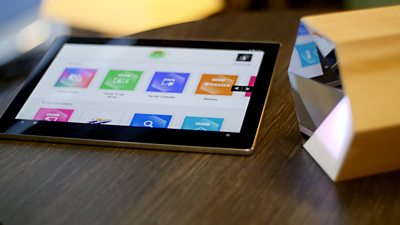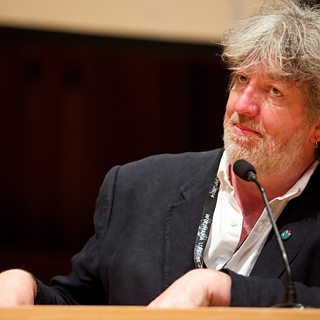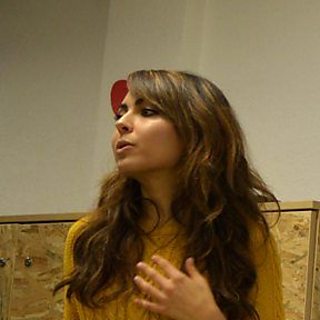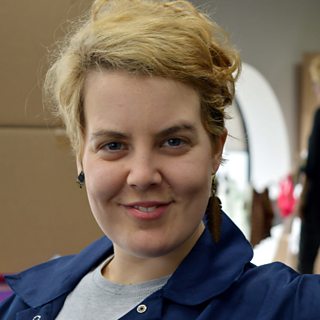Databox is a project with Nottingham University. It is a platform for managing secure access to data and enabling authorised third parties to provide the owner authenticated control and accountability. Because it is an open platform, it's perfect for prototyping real scenarios.
Project from 2017 - present

sits at the centre an individual’s personal data ecosystem to enhance accountability and control over the use of personal data by third parties. The Databox is an open-source networked device, augmented by cloud-hosted services, that sits within the home. It allows individuals to securely manage third-party access to their personal data, including online sources of data, and enables authorised third parties to provide the Databox owner with authenticated applications and services that leverage their personal data.
The Databox has its origins in an emerging school of thought called , which sees personal data as an object in its own right rather than a by-product of our mundane interactions with computers and digital services. See our HDI work.
Personal data is broadly seen and treated as the ‘new currency’ or ‘oil’ that fuels the digital economy and an increasing array of ‘personalised’ services, but it is not a currency or commodity that individuals can easily control at the current moment in time. HDI seeks to address this situation, and the widespread ‘crisis of trust’ that accompanies it, by putting the individual at the centre of personal data processing and providing mechanisms that help people understand and control the flow of their personal data.
At the heart of HDI lies three core principles:
- Legibility recognises that data flows and data processes are often opaque to individuals and is therefore concerned to make data and data processing, including algorithmic operations, transparent and comprehensible or accountable to users.
- Agency recognises the need to empower people to manage their data and third-party access. This not only includes the ability to opt-in or opt-out of data processing, but also the broader ability to engage with data collection, storage and use, and to understand and modify data and the inferences drawn from it.
- Negotiability recognises that data processing is essentially a social act involving not only computers but also human actors. This includes organisations as well as individuals, and requires that people be able to manage the social interactions implicated data processing and that they can derive value from data processing operations for themselves.
In place of current cloud-based approaches, which move personal data ‘off site’ for processing, the Databox implements processing at the edge of the network in the individual’s personal environment. Only the results of data processing are distributed and used to deliver services. This minimises the distribution of personal data and the privacy threats that accompany it, along with the organisational risks that attach to personal data processing.
Current work
Introducing Â鶹ԼÅÄ Box
Â鶹ԼÅÄ Box is a Databox-powered platform for experimenting with different models of personal data processing that addresses Â鶹ԼÅÄ R&D’s core priorities.
The first Box service will be a recommender that imports user data (with permission) from a range of media services, and processes it within the Databox environment to create a user profile. This can then be exported under user control to shape the suggestions offered by an enhanced media/listings application.
This will be the project's first end to end demo and will create a space to experiment with new approaches to personal data with defined use cases aimed at demonstrating new forms of audience value. Our roadmap over the next 12 months takes us towards more distinctive and ambitious new forms of value use cases, building on our existing work and partnership with the Databox team and collaborative work with colleagues across Â鶹ԼÅÄ Design + Engineering.
The Living Room of the Future
Â鶹ԼÅÄ R&D and the Databox team are also, in collaboration with the and , organising a public experiment called , which seeks to explore the relationship between our hyper-connected homes and next generation broadcasting techniques in ways that enhance inhabitants’ media experiences while protecting their privacy and security.
The HDI principles that underpin Databox development have also been applied in an innovative collaboration with Â鶹ԼÅÄ R&D centring on ‘Object Based Media’ (OBM). OBM adapts media to devices, environments, and people . Â鶹ԼÅÄ R&D and the Databox team undertook a public experiment at the 2016 Mozilla Festival to explore the potential relationship between OBM and Databox. The experiment leveraged the OBM alongside Internet of Things technologies to engage members of the public in an innovative cooking experience. Mediated by the Databox, the experience used data generated by participants’ interactions with Internet-enabled utensils and kitchen appliances .
The Databox project is supported by the following Engineering and Physical Sciences Research Council grants:
- EP/N028260/1,
- EP/M001636/1,
- EP/M02315X/1,
For further information please contact Professor Andy Crabtree andy.crabtree@nottingham.ac.uk
Project Team
Project updates
-

Future Experience Technologies section
This project is part of the Future Experience Technologies section





